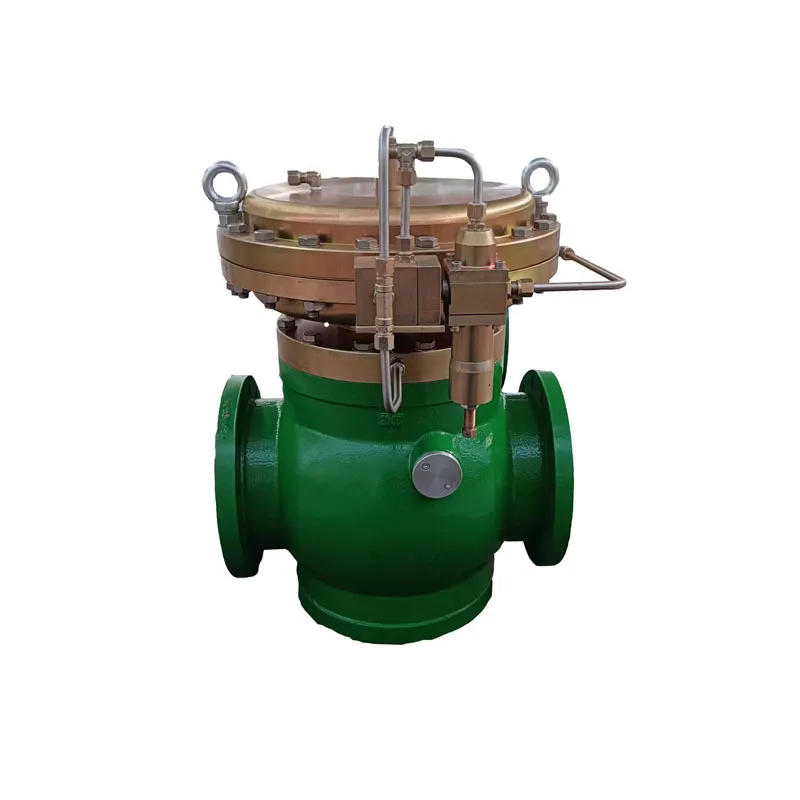
Dec . 06, 2024 19:59
Back to list
مبادل حراري
Heat Exchangers Principles, Applications, and Innovations
Heat exchangers are essential components in various industrial processes, as they facilitate the efficient transfer of heat between two or more fluids at different temperatures. By enabling heat transfer, they help optimize energy usage, conserve resources, and improve the performance of systems ranging from power plants to air conditioning units. This article delves into the principles, applications, and current innovations in heat exchangers.
Principles of Heat Exchange
At the core of heat exchanger design is the concept of thermal conductivity, which refers to a material's ability to conduct heat. Heat exchangers operate on the principle of transferring thermal energy from a hotter fluid (usually a gas or liquid) to a cooler one without mixing the two. This process relies on the principles of convection, conduction, and sometimes radiation.
There are several types of heat exchangers, including
1. Shell and Tube Heat Exchangers These consist of a series of tubes; one set carries the hot fluid while the other carries the cold fluid. The heat transfer occurs through the tube walls. This design is widely used in industries due to its efficiency and ease of maintenance.
2. Plate Heat Exchangers Made up of multiple thin plates, these devices maximize surface area for heat transfer while minimizing the volume of fluid required. Their compact design enhances thermal efficiency and makes them easy to clean.
3. Air-Cooled Heat Exchangers These systems use air as the cooling medium and are often employed in power plants and large-scale refrigeration systems to dissipate heat without the need for cooling water.
4. Double-Pipe Heat Exchangers Comprising one pipe inside another, these exchangers allow for heat exchange between two fluids flowing in opposite directions. Though simpler in design, they are highly effective for smaller applications.
Applications of Heat Exchangers
.
1. Power Generation In thermal power plants, heat exchangers are used to transfer waste heat from combustion processes to working fluids, which helps in improving overall energy efficiency.
مبادل حراري

2. Chemical Processing In chemical plants, heat exchangers regulate temperatures by recovering heat from exothermic reactions or providing heat for endothermic ones, optimizing the efficiency of chemical reactions.
3. HVAC Systems In heating, ventilation, and air conditioning systems, heat exchangers are employed to maintain desired indoor climates, providing energy-efficient cooling and heating.
4. Food and Beverage Industry Heat exchangers are vital in pasteurization processes, where maintaining specific temperatures is critical for ensuring product safety and quality.
5. Automotive Industry Engine cooling systems incorporate heat exchangers to manage engine temperatures, enhancing performance and longevity.
Current Innovations
With increasing global focus on energy efficiency and environmental sustainability, the field of heat exchangers is continuously evolving. Innovations include
1. Nano-Fluid Technology Enhancing the thermal conductivity of fluids through the use of nanoparticles, which can significantly increase the efficiency of traditional heat exchangers.
2. Compact Heat Exchangers Ongoing research aims to develop smaller and more effective heat exchangers that can fit into confined spaces while maintaining or improving performance.
3. Adaptive Heat Exchangers These are designed to adjust their thermal performance based on changing process conditions, thereby enhancing overall efficiency and reducing energy consumption.
4. Environmentally Friendly Materials The shift towards using materials that minimize environmental impact, such as biodegradable or recyclable substances, is gaining traction in heat exchanger design.
Conclusion
Heat exchangers are integral to the optimization of thermal energy use in various sectors. Their ability to transfer heat efficiently contributes to energy conservation and sustainability efforts across industries. As technological advancements continue to unfold, heat exchangers will not only become more effective but also play a pivotal role in addressing the global energy challenge. Understanding their principles, applications, and innovations is crucial for engineers, researchers, and industries aiming to harness the benefits of thermal management solutions.
Latest news
-
Safety Valve Spring-Loaded Design Overpressure ProtectionNewsJul.25,2025
-
Precision Voltage Regulator AC5 Accuracy Grade PerformanceNewsJul.25,2025
-
Natural Gas Pressure Regulating Skid Industrial Pipeline ApplicationsNewsJul.25,2025
-
Natural Gas Filter Stainless Steel Mesh Element DesignNewsJul.25,2025
-
Gas Pressure Regulator Valve Direct-Acting Spring-Loaded DesignNewsJul.25,2025
-
Decompression Equipment Multi-Stage Heat Exchange System DesignNewsJul.25,2025

